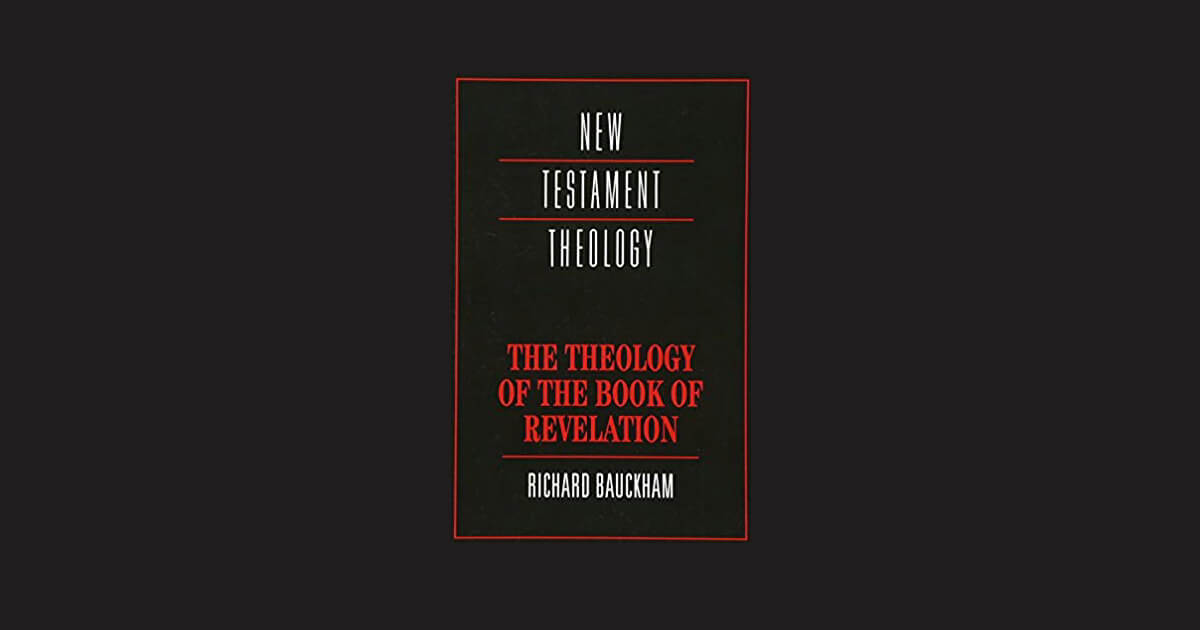The Theology of the Book of Revelation

Leave a reply
Description
Book Review
The Theology of the Book of Revelation
Submitted to Professor: Dr. Robby J. Kagarise
Of the SUM Bible College & Theological Seminary
Lijo George
New Testament Exegesis: 1st and 2nd Thessalonians Spring 2016-2017 (NTEX6333.01)
April 27, 2017
Download PDF
The Theology of the Book of Revelation, by Richard Bauckham, New Testament Theology Cambridge University Press, 1993. 165 pp. The Theology of the Book of Revelation by Richard Bauckham is an in-depth look at the book of Revelation. While the book may be small in size, it is most definitely packed full of eschatological thoughts and background that will enhance anyone’s study of the Revelation. What stands out in this book is Bauckman’s use of detail. Not only did he write about how we should view Revelation, but he also brought in how Revelation fits into the wider canon of the Bible by relating it to Old Testament prophecy and authors. While some readers may need to pull out their dictionaries to understand everything Bauckham was saying (50-cent words anyone?), the book is accessible and understandable to those who don’t have a seminary degree. Theology, especially in the area of eschatology, can be broad subject, and there is no shortage of written or verbal speculation about what the true intent the author of Revelation is trying to convey. Many questions surround the book. Is it allegorical? Is it fiction? Should it be taken literally word for word? Bauckham holds the stance that Revelation “cannot be read either as literal descriptions or as encoded literal descriptions, but must be read for their theological meaning and their power to evoke response.” (Bauckman, 20) Throughout the book, Bauckman breaks down the book by topic in order for readers to get an idea of the background and provide topical insights in each chapter. Bauckham starts off in Chapter 1 with an explanation of how the book should be viewed in light of the whole Bible. Bauckman gives much detail about John and his background. As he explains, “John not only writes in the tradition of the Old Testament prophets, but understands himself to be writing at the climax of the tradition, when all the eschatological oracles of the prophets are about to be finally fulfilled, and so he interprets and gathers them up in his own prophetic revelation.” (Bauckman, 5) Chapter 2 focuses on how Revelation brings us into John’s worship of God. John’s vision of God who sits on the throne is just one of the ways John displays God as the focus of worship within this chapter. John’s knowledge and how he writes about God reminds us that as we learn about who God is, we also become closer in worship. Bauckman says through Revelation “we are thereby reminded that true knowledge of who God is inseparable from worship of God.” (Bauckman, 32) Chapter 3 brings our attention to how careful John is to promote and lead us toward monotheistic worship, which is, in simple terms, that God and Jesus are one. As impossible as it is to explain the finer points of the trinity in the short amount of space available, I will summarize it in Bauckman’s words: The importance of John’s extraordinarily high Christology for the message of Revelation is that it makes absolutely clear that what Christ does, God does. By far, the longest topic Bauchman focused on was in Chapter 4, which covered the major symbolic themes of Revelation, and the victory of the Lamb (Christ). The author starts with the messianic war, which takes up the Jewish hope of a military leader in the line of David (Pg. 67). The second topic is the eschatological exodus, which uses the exodus from Egypt as the model for the hope of an apocalyptic exodus as a salvation hope in the future. The third theme analyzed in chapter 4 is Jesus as a witness, and deals with the judgment of and exposure of the world’s worship of evil. As Bauchman puts it, “The world is a kind of court-room in which the issue of who is the true God is being decided. In this judicial contest, Jesus and his followers bear witness to the truth.” (Bauckman, 72) The fifth chapter deals with prophecy and delves deeper into references of the spirit within Revelation. He gives insight into the difference between the seven sprits and the spirit. “The seven Spirits represent the fullness of the divine Spirit in revelation to God, to Christ and the church’s mission to the whole world. This is what distinguishes the references to the seven Spirits from the references simply to the Spirit.” While some authors may have gotten caught up in defining this difference for the reader, Bauckman is careful to remind the reader what their purpose is. “Prophecy as the Spirit’s message through prophets to the churches is designed to prepare and enable the churches to hear their prophetic witness to the world, inspired by the Spirit.” (Bauckman,118) After going deep into the Sprit’s role in Revelation, John talks about the geography in Chapter 7 and The New Jerusalem. In order to relate to the culture and time of the people, John talks about the geography in similar terms to what the people were already familiar with. This chapter discusses how The New Jerusalem not only has strong ties to the Old Testament tradition, but also speaks to God’s covenant to His people. Chapter 8 serves as a reminder that Revelation is ultimately leading to a deeper understanding of who God is and his power. As a wrap-up to the topical subjects, Bauckman looks into the validity of John’s prophecy, as well as Revelation’s relevancy to modern Christians. However, he ultimately concludes, “the imminent expectation of the early Christians was a way of living in the light of what history is finally, in God’s purpose, all about. It sees every moment of life in relation to the coming of God’s kingdom. Overall, this book was a comprehensive look into John’s Revelation, and a balanced commentary on the text. The only weakness I saw was that it wasn’t a true verse-by-verse commentary of the text. And just a word of warning, if you’re a true die-hard dispensationalist, this book may direct your thoughts outside of your normal thinking. While Revelation is rich in the depths of eschatology, Bauckman shows his audience that Revelation is an important text to study as believers in order to not only point us to Godly worship, but to ultimately renew our understanding of who God is. Bauckman’s hope is that by bringing clarity to Revelation, he will spark people’s imagination, and shape his readers response to the world. Bibliography: Bauckham, Richard. The Theology of the Book of Revelation. Cambridge, United Kingdom: Cambridge UP, 2015. Print.
Info

